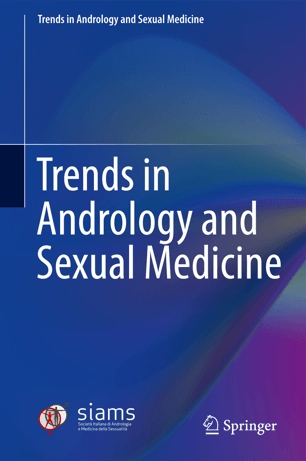Mollaioli, Daniele, Andrea Sansone, Francesco Romanelli, and Emmanuele A. Jannini.
In Sexual Dysfunctions in Mentally Ill Patients, pp. 163-172. Springer, Cham, 2018.
Abstract
Among behavioral addictions, problematic Internet use and online pornography consumption are often cited as possible risk factors for sexual dysfunction, often with no definite boundary between the two phenomena. Online users are attracted to Internet pornography because of its anonymity, affordability, and accessibility, and in many cases its usage could lead users through a cybersex addiction: in these cases, users are more likely to forget the “evolutionary” role of sex, finding more excitement in self-selected sexually explicit material than in intercourse.
In literature, researchers are discordant about positive and negative function of online pornography. From the negative perspective, it represents the principal cause of compulsive masturbatory behavior, cybersex addiction, and even erectile dysfunction. From the other perspective, researchers who evaluate positively online pornography highlight its therapeutic role in sexological treatments, especially in individuals and couples with reduced libido and lack of sexual fantasies. Internet can also become a place where patients ask for help to sexual health specialists, according to the Internet-based sexual therapy (IBST).
Introduction
Low sexual desire, reduced satisfaction in sexual intercourse, and erectile dysfunction (ED) are increasingly common in young population. In an Italian study from 2013, up to 25% of subjects suffering from ED were under the age of 40 [1], and in a similar study published in 2014, more than half of Canadian sexually experienced men between the age of 16 and 21 suffered from some kind of sexual disorder [2]. At the same time, prevalence of unhealthy lifestyles associated with organic ED has not changed significantly or has decreased in the last decades, suggesting that psychogenic ED is on the rise [3]. The DSM-IV-TR defines some behaviors with hedonic qualities, such as gambling, shopping, sexual behaviors, Internet use, and video game use, as “impulse control disorders not elsewhere classified”—although these are often described as behavioral addictions [4]. Recent investigation has suggested the role of behavioral addiction in sexual dysfunctions: alterations in neurobiological pathways involved in sexual response might be a consequence of repeated, supernormal stimuli of various origins.
